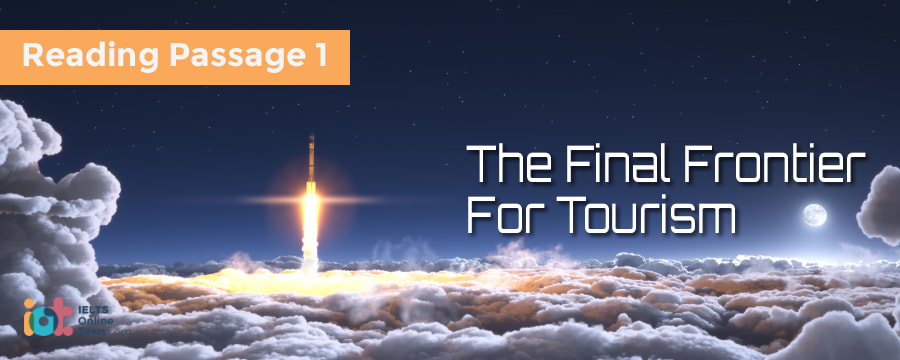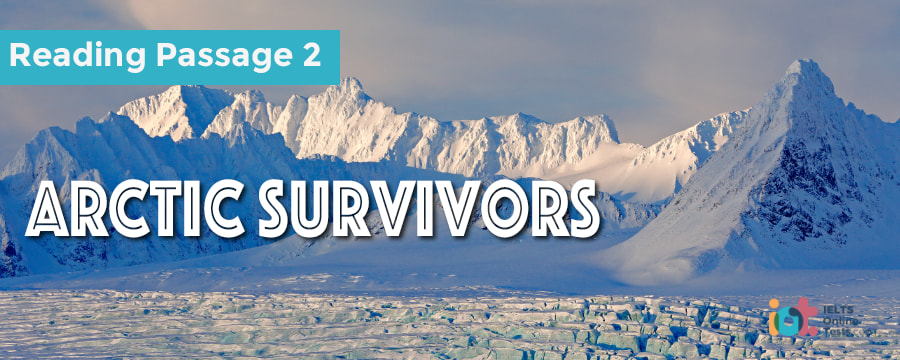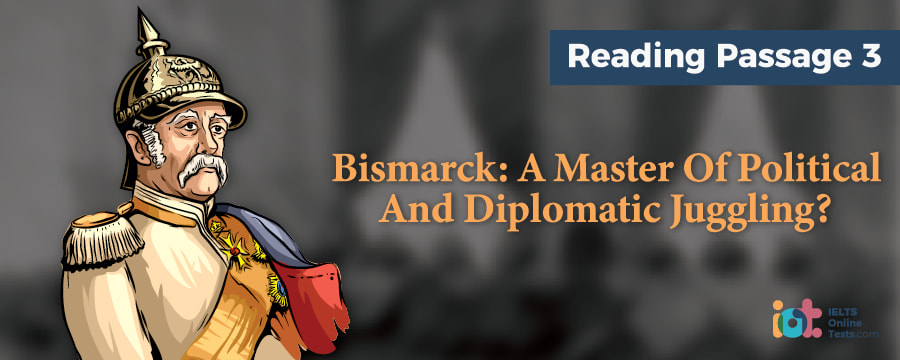Part 1
READING PASSAGE 1
You should spend about 20 minutes on Questions 1-13, which are based on Reading Passage 1 below.

The Final Frontier for Tourism
A
For some reason humankind has always looked towards the stars and dreamt of one day making the voyage into the unknown and exploring outer space. Perhaps it is our innate curiosity, perhaps the challenge presented by the seemingly impossible; whatever the lure, the quest to venture into space has become an obsession for many.
B
On a memorable July day in 1969 one man made a giant leap for his kind. Neil Armstrong touched down on the moon as the world watched with bated breath. Was this a beginning or the culmination of years of endeavour that pushed science to its very limits? Well, it has been a long time indeed since the last moon landing, more than 40 years, but science has not stood still in the interim, nor have our dreams become any less ambitious. According to NASA, plans are afoot for a manned mission to Mars at some point after 2020. A return to the moon has been scheduled sooner - perhaps 2018 if NASA's new Crew Exploration Vehicle (CEV) is rolled out on lime. It may not be Hollywood razzle-dazzle-style progress; it may even be painstakingly slow, but rest assured that plans are afoot for something very ambitious and special indeed, and NASA may be back in the headlines making waves and history again, just as it did on that faithful day in 1969, in the not-too-distant future.
C
That said, it is the prospect of space tourism for the masses that has captured the headlines recently, and this may not be such a distant dream as people would expect. In 2001, an American multimillionaire, Dennis Tito, became the first space tourist, spending ten days on the International Space Station along with his crew of Russian cosmonauts, and fulfilling a lifelong ambition in the process. He described the experience rather paradoxically as 'indescribable'; everything that he thought it would be and more. A year later, South African millionaire Mark Shuttleworth followed in his footsteps. On his return to Earth he said, 'every second will be with me for the rest of my life'. Clearly these men had a once-in-a-lifetime experience, but this came at a hefty price, both paying $20 million for the pleasure of their space adventures.
D
At present, space tourism is undoubtedly reserved for an elite and wealthy few, but what of the future? If Eric Anderson, president of Space Adventures, the company that organised Tito and Shuttleworth's trips, is to be believed, it will be the next big thing. 'Everyone's looking for a new experience', he says. Indeed, Space Adventures is planning to offer rocket trips to the public for $100,000 within the next few years, so perhaps space tourism is closer than we think. Another company, The Space Island Group, is planning to build a space hotel inspired by the spaceship in the film 2001: A Space Odyssey. Gene Meyers, the company's president, predicts that in 2020 a five-day holiday at the hotel will cost less than $25,000. Imagine, he says, a five-star hotel with all the usual luxuries, except that each morning you'll be greeted by mind-blowing views of outer space. This is certainly food for thought for adventure-seeking holiday planners. That said, unless there is a serious spike in inflation between now and 2020, $25,000 will still remain a considerable sum of money to have to part with for a recreational activity, once-in-a-lifetime or not. But that is perhaps missing the point -the prospect of affordable space travel is getting closer and closer and it is only a matter of time before it becomes a reality.
E
Other companies have even more ambitious plans. Bigelow Aerospace is spending close to $500 million on a project to build a 700-metre spaceship to fly tourists to the moon. The spaceship will be able to hold 100 guests, each with a private room offering truly unique views of the Earth's sunset. Even the Hilton Hotel Group wants to get in on the act with talk of plans to build a Hilton on the moon. For the present, only millionaires can enjoy the privilege of a space journey, but in the words of one Bob Dylan, 'The times they are a changing.' And sooner than you'd think.
Part 2
READING PASSAGE 2
You should spend about 20 minutes on Questions 14-26, which are based on Reading Passage 2 below.

Arctic Survivors
The Arctic is an area located at the northernmost part of the Earth and includes the Arctic Ocean, Canada, Russia, Greenland, the United States, Norway, Sweden, Finland and Iceland. It consists of an ice-covered ocean, surrounded by treeless permafrost. The area can be defined as north of the Arctic Circle, the approximate limit of the midnight sun and the polar night. The average temperature in July, which is the warmest month, is below 10°C. Colder summer temperatures cause the size, abundance, productivity and variety of plants to decrease. Trees cannot grow in the Arctic, but in its warmest parts, shrubs are common and can reach 2 metres in height.
A thick blanket of snow lies several feet deep all over the ground. The sun appears for only a few brief hours each day before sinking below the horizon as blackness cloaks the land. As it vanishes, a bitter chill tightens its grip. The Arctic is not a place to be in the throes of winter; it is hostile to almost all animal life. Amphibians would freeze solid here. Nor can reptiles withstand the extreme cold. And yet there are animals here, animals that exhibit a remarkable tolerance of the most inhospitable conditions on the planet.
Less than half a metre beneath the surface of the snow, a furry white creature, no bigger than a hamster, scurries along a tunnel. It is a collared lemming. It and other members of its family have excavated a complex home within the snow field, but it costs the lemmings a great deal to survive here. They pay by using some of their precious and scarce food supply to generate heat within their bodies so that their biochemical processes can continue to function efficiently. But in order to keep fuel costs to a minimum, they must conserve as much energy as they can. A thick insulating coat of fine fur covering all but the lemmings' eyes achieves this. Fur is the life preserver of the Arctic.
Only one class of animals has fur - the mammals. Fur is comprised of dense layers of hair follicles. Hair is composed of a substance called keratin. It grows constantly, its roots embedded in the skin and surrounded by nerve fibres so that its owner can sense any movement of the hair. It is this precious fur that gives land mammals the edge necessary to survive the harsh Arctic winter. Without it, wolves, lemmings and arctic foxes alike would surely perish.
The insulation provided by fur comes not from the fur itself, but largely from the layer of air trapped within the fur. Air is an extremely effective insulator, which is the same as saying it is a poor conductor, i.e. it has a very limited ability to conduct heat away from a warm surface. Studies reveal that if a layer of air of about five centimetres could be held in place close to the skin, it would provide the same insulation as does the impressively dense winter coat of the arctic fox. If an arctic fox or wolf is exposed to an air temperature of about minus ten degrees, the temperature near the tips of the fur will match the air temperature, but at the surface of the skin it will be closer to thirty degrees. This represents a temperature difference of around forty degrees. Such effective insulation is only made possible by the layer of trapped air contained within the long, fine and densely packed fur.
But Arctic mammals have more in their arsenal than just fur to protect them from the elements. Unlike amphibians, reptiles and other classes of animals, they are endotherms, meaning they can generate their own body heat. This is another of the defining characteristics of mammals. It is the mammalian ability to generate heat internally that enables the arctic fox or the lemming to remain warm and active in very cold conditions. Generating heat internally, Arctic mammals can regulate their body temperature independent of external conditions; this is known as thermoregulation. When Arctic mammals are cold, they raise their metabolic rate and produce more heat. When they are warm, the reverse happens. Together, thermoregulation and fur make Arctic mammals perfectly equipped to face the toughest conditions the Arctic can throw at them.
Part 3
READING PASSAGE 3
You should spend about 20 minutes on Questions 27-40, which are based on Reading Passage 3 below.

Bismarck: A Master of Political and Diplomatic Juggling?
A
Otto Von Bismarck’s rise up the political ladder was swift and relentless. Having entered parliament in 1847, he always harboured lofty ambitions, chief among them perhaps being the reunification of Germany into one strong, centrally controlled state, though his own personal thirst for power was arguably even stronger. On becoming Prussian Chancellor, he set about fulfilling his ambitions and in doing so proved himself to be a diplomat of some considerable skill. Victory in the Austro-Prussian war effectively ended Austria as a factor in German affairs. His political and military juggling was taken a step further when he orchestrated a situation where France declared war on Germany in 1.870, making the French seem responsible for a conflict he had always intended to create. And following another swift military triumph, this time over the French, the German empire was proclaimed in January 1871.
B
In little more than nine years, Bismarck realised his lifelong ambition, steering Germany to reunification. And by defeating Austria and France in quick succession, he also created a power vacuum on mainland Europe which he was determined to fulfill himself. This was another opportunity for Bismarck to demonstrate his political and diplomatic cunning. He set about creating a dictatorial Germany in which he, as head of the Prussian parliament, would automatically become chancellor of the German empire. He drafted a new German constitution to suit his own purposes and, despite maintaining a veneer of democracy, the German parliament was effectively powerless to oppose him. Provinces that were slow to support him were enticed with bribes and before long the German empire was his to command.
C
It is testament to his political skill that Bismarck achieved so much so quickly. At this point in his colourful political career he did appear, for all intents and purposes, a master of political and diplomatic juggling. But challenges lay ahead and Bismarck’s next target was the Catholic church, which he deemed too powerful and a threat to his political dominance. He proceeded to enact a series of laws which seriously eroded the power of the church. However, his plans backfired and Bismarck was forced to make a political U-turn. Though here again, he somehow managed to save face. The damage to his reputation was limited and indeed by the late 1870s he had even managed to win over the church whose support he now needed.
D
Bismarck viewed the growing popularity of the Socialist Democratic Party as a serious threat. He bided his time and used the attempted assassination of the Kaiser as an excuse to attack the socialists in 1878, blaming them for the attempt on the Kaiser’s life. He immediately arrested the leaders, banned party meetings and suppressed socialist newspapers. But despite his efforts to destroy the socialist movement, its popularity had trebled by 1890. Just as his interventions with the church had not gone as planned, Bismarck once again failed to achieve his objective; though, to his credit, he held on to power.
E
His domestic position was relatively secure after 1871, Bismarck devoted a lot of his time to foreign policy. Having used war to unite Germany and make her great, Bismarck now believed that his ambitions were best served by peace. His plan to isolate a hostile France would require all his considerable diplomatic skills. The Dreikaiserbund agreement of 1873 between Germany, Austria-Hungary and Russia was a first step towards doing just that. The Balkan crisis, a conflict involving Russia and Austria-Hungary, severely tested his diplomatic credentials, but his answer was to offer himself as an ‘honest broker’ to help resolve the dispute. The subsequent Congress of Berlin which he hosted was an outstanding success and only served to reinforce Bismarck’s reputation as a shrewd diplomat. Bismarck’s foreign policy would continue in this vein throughout his reign as Chancellor. He built up strategic alliances with the big powers, Russia, Italy and Austria-Hungary, in the hope that he could keep his main threats, France and Britain, isolated.
F
In truth, Bismarck’s reign as chancellor of the German empire does seem to confirm him as a shrewd and wily diplomat and politician, one whose objectives were broadly achieved. Does this mean his so-called juggling was a success? Perhaps, but Bismarck left a less than perfect legacy. He created a Germany in which the Kaiser had the ultimate say in domestic affairs and enjoyed far too much power should he choose to wield it. This meant that the future of the empire largely depended on the strength and character of just one man, the Kaiser. A weak Kaiser would be disastrous for the country’s welfare, and so it would soon prove. In the final analysts, Bismarck put Germany back on the map again as a great power during his reign, but we should not forget that he created the political situation that would be the downfall of his country in the end. His political and diplomatic juggling, therefore, simply cannot be considered a total success.


